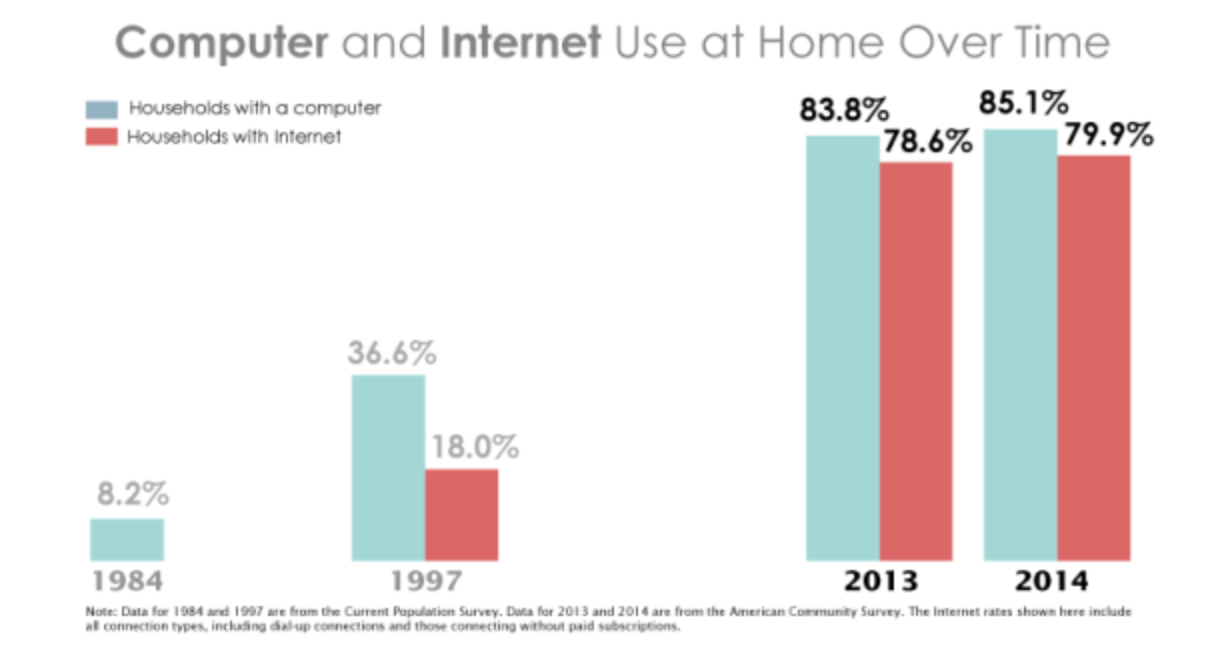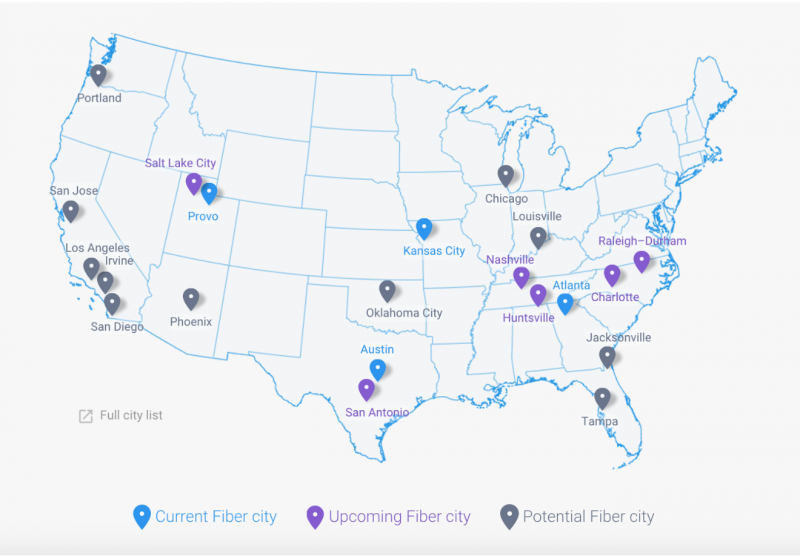Access to computers and high-speed internet has never been more important than it is for Americans today. On a daily, if not hourly, basis, U.S citizens use computer programs and the internet to complete homework assignments, email, store and access data, shop online, play video games, watch movies, access finances and even form relationships on dating sites.
Just 20 years ago, few homes in the United States had computer access, let alone high-speed internet. According to a study conducted by the United States Census Bureau, more households today use not only desktop computers, but also a wide range of devices such as laptops, smartphones and tablets in their homes more than ever before.

Utah was ranked as one of the most “highly connected” states in the nation. The Census Bureau reported that 94.9 percent of Utah’s population live in a household with a computer, ranking the state number one in the country. With respect to high-speed internet usage, Utah ranks number five among the 50 states, with 83.8 percent of Utahns having access to high-speed internet. New Hampshire ranks number one in the country, with 85.7 percent of residents living in a household with high-speed internet.
The Census Bureau also reported that 96.7 percent of Provo-Orem residents own a computer, ranking the metropolitan area number two in the nation for highest computer ownership. Boulder, Colorado, ranked number one at 96.9 percent. Almost all of the top cities for computer ownership are college towns.
BYU student and Nuvi employee William Farnbach credits the Provo-Orem area’s computer and internet usage to the state’s high level of education. He argued computer access helps him succeed in school.
“The internet is sort of the great equalizer when it comes to educational resources. Utah has this sort of built into its culture. We want to try and find an easy way to learn so we constantly want to be exposed to new ideas and technologies,” Farnbach said. “Teachers really can’t personalize your learning experience the way they used to, because now we have a web browser that can teach us in a quicker, and sometimes more reliable, way.”
According to Utah.gov, Utah has a high school graduation rate of 83 percent, and the state ranks 11th in the nation for employment in a technology-related field.
Farnbach speculated that Provo-Orem could also have higher than average computer and internet percentages due to the area’s recent implementation of Google Fiber. Farnbach and his wife have Google Fiber installed in their apartment.
In 2013, Google Fiber made Provo the third city in the country to have its Gigabit Internet, an internet service up to 100 times faster than average broadband speeds. The company offers free internet services of 5Mbps to nearly every home in Provo; residents are only required to pay a $30 activation fee.
“Utah is already home to hundreds of tech companies and startups, and many of them are based in Provo,” said Kevin Lo, a general manager at Google Fiber in a blog post when the company announced it was coming to Provo. “In fact, the Provo area ranks second in the nation in patent growth, and is consistently ranked as one of the top places to live and do business.”
The Census Bureau also reported that five of the top 10 metropolitan areas with the highest computer ownership that fall closely behind Provo-Orem are also located in Utah: St. George at 95.4 percent, Ogden-Clearfield at 95.3 percent, Logan at 95.1 percent, and Salt Lake City at 94.8 percent.
In 2015, Google Fiber announced it would deploy its Gigabit internet service in another city in the so-called “Silicon Slopes”: Salt Lake City. As of today, there are four cities that currently have Google Fiber, seven announced but not yet deployed Google Fiber cities, and 11 other potential Google Fiber cities across the nation.

Although Utah has such high computer-ownership rates, not all Utah citizens own a computer. Haley Adams, a soccer player at University of Southern Utah, purchased her first laptop this past winter.
“I didn’t have the money at the time to buy a computer to take to college with me and neither did my parents with all of the upcoming expenses of a university,” Adams said. “I don’t think that it is completely necessary for college students to have their own personal computer, but as a student athlete with an awful, sporadic schedule, a computer is a lifesaver.”




